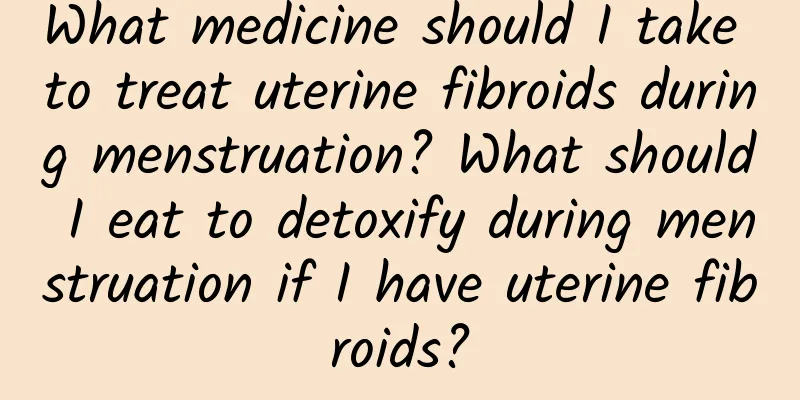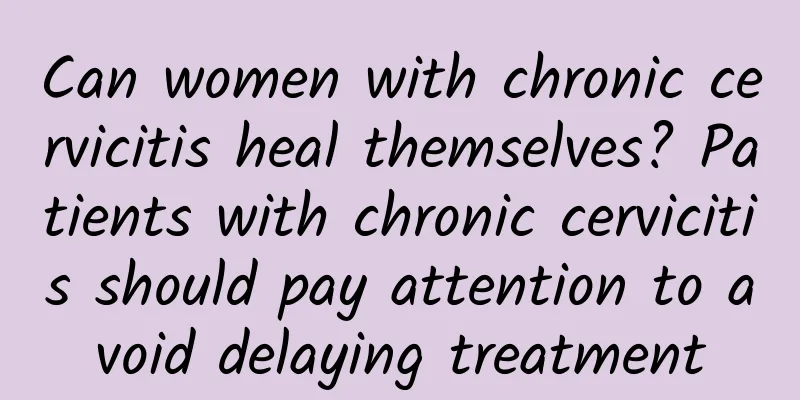What are the typical symptoms of perimenopausal syndrome? What exactly is perimenopausal syndrome?

|
Perimenopausal syndrome, also known as menopausal syndrome (MPS), refers to a series of syndromes caused by fluctuations or reductions in sex hormones before and after menopause in women, mainly characterized by autonomic nervous system dysfunction and accompanied by neuropsychological symptoms. Menopause can be divided into natural menopause and artificial menopause. Natural menopause refers to the exhaustion of ovarian follicles, or the loss of response of the remaining follicles to gonadotropins, the follicles no longer develop and secrete estrogen, and cannot stimulate the growth of the endometrium, leading to menopause. Artificial menopause refers to surgical removal of both ovaries or other methods to stop ovarian function, such as radiotherapy and chemotherapy. Removal of the uterus alone while retaining one or both ovaries is not considered artificial menopause. The determination of menopause is mainly based on clinical manifestations and hormone measurements. Artificial menopause is more likely to occur in people with artificial menopause. The early or late menopause age is related to the number of follicle reserves, follicle consumption, nutrition, region, environment, smoking, etc., but has nothing to do with factors such as education level, body shape, age at menarche, number of pregnancies, age at last pregnancy, long-term use of contraceptives, etc. Using contraceptives to suppress ovulation cannot delay menopause, because the consumption of eggs does not mainly depend on ovulation, and a large number of follicles disappear through atresia. Common symptoms: Menstrual disorders, hot flashes, night sweats, irritability, anxiety or depression, loss of self-control, memory loss, and urinary, reproductive, and cardiovascular diseases The most typical symptoms of menopausal syndrome are hot flashes and flushes. Menopausal syndrome often occurs between the ages of 45 and 55. 90% of women may experience symptoms of varying severity. Some people begin to experience symptoms during the menopausal transition period and continue for 2 to 3 years after menopause. For a few people, symptoms may not be alleviated or disappear until 5 to 10 years after menopause. Artificial menopausal women often experience menopausal syndrome 2 weeks after surgery, reaching a peak 2 months after surgery and lasting for 2 years. 1. Menstrual changes Menstrual cycle changes are the earliest clinical symptoms of perimenopause. They are roughly divided into three types: (1) The menstrual cycle becomes longer, the menstrual volume decreases, and eventually menopause occurs. (2) Irregular menstrual cycles, prolonged menstrual periods, increased menstrual flow, and even heavy or continuous bleeding, which then gradually decreases and stops. (3) Sudden cessation of menstruation is rare. Since the ovaries do not ovulate, estrogen levels fluctuate, which can easily lead to endometrial cancer. For those with abnormal bleeding, diagnostic curettage should be performed to rule out malignant changes. 2. Vasomotor symptoms are mainly manifested as hot flashes and sweating, which are manifestations of unstable vasomotor function and the most prominent characteristic symptoms of menopausal syndrome. About 3/4 of women with natural menopause or artificial menopause may experience it. Hot flashes start from the chest, rush to the head and neck, and then spread to the whole body. In a few women, they are only limited to the head, neck and breasts. Patients feel burning in the area of flushing, the skin becomes red, and then bursts of sweating occur. It lasts from a few seconds to a few minutes, and the frequency of attacks ranges from several times a day to 30 to 50 times. It is easy to trigger at night or under stress. This kind of vascular function instability can last for 1 year, sometimes up to 5 years or longer. Ovarian failure (35%): The fundamental cause of menopausal syndrome is ovarian failure due to physiological, pathological or surgical reasons. Female characteristics and physiological functions are closely related to the estrogen secreted by the ovaries. Once the ovarian function fails or is removed and destroyed, the estrogen secreted by the ovaries will be significantly reduced. Modern medical research has found that there are more than 400 types of estrogen receptors in the female body. These receptors are distributed in almost all tissues and organs of the female body and are controlled and dominated by estrogen. Once the estrogen secretion in the body decreases, it will trigger degenerative changes in organs and tissues, resulting in a series of symptoms. Decreased neurotransmitter levels (35%): Relevant studies on neuroendocrine have shown that: hypothalamic neurotransmitters such as opioid peptides (EOP), epinephrine (NE) and dopamine (DA) are significantly correlated with the occurrence of hot flashes, and serotonin (5-HT) has regulatory functions on endocrine, cardiovascular, emotional and sexual life. It has been reported that autonomic dysfunction in patients with perimenopausal syndrome is related to a significant decrease in 5-HT in the blood. Animal experiments have further proved that the 5-HT level in the hypothalamus is significantly reduced after oophorectomy, which can be significantly reversed after the use of estrogen. Therefore, it is believed that the functional disorder symptoms manifested by perimenopausal syndrome may be related to the decrease in 5-HT with age. Studies have found that the blood levels of β-endorphin (β-EP) and its antibodies in postmenopausal women are significantly lower than those in women of the reproductive period, and the decrease in β-EP antibodies indicates that the immune system's function in regulating neuroendocrine function is disturbed, resulting in various neuropsychiatric symptoms. Other factors (15%): It has been reported that 11 pairs of twin sisters had exactly the same onset of perimenopausal syndrome, and their symptoms and duration were also very similar. Individual personality traits, neurological type, cultural level, occupation, social interpersonal relationship, family background, etc. are related to the onset and severity of perimenopausal syndrome. A large amount of clinical data shows that those with cheerful personalities, stable neurological types, and manual laborers are less likely to develop perimenopausal syndrome or have milder symptoms, and the symptoms disappear faster. Women with withdrawn personalities, unstable neurological types, mental depression or strong mental stimulation, higher cultural levels, and superior social status and living conditions have more severe symptoms, indicating that the occurrence of the disease may be related to higher nervous activity. 1. Medical and health care personnel should actively promote health care knowledge to menopausal women, help them master the necessary scientific knowledge, eliminate fear and doubts, and treat menopause with an optimistic and positive attitude. 2. Health care knowledge should also be promoted to the families of menopausal women, mainly their husbands, to help them understand the symptoms that women may experience during menopause. Once certain symptoms of neurological dysfunction appear, they should be given care, comfort, encouragement and sympathy. 3. It is best for menopausal women to have a physical examination once every six months to one year, including gynecological examination and cancer prevention examination, and selective endocrine examination. Medical care personnel should provide high-quality consulting services to menopausal women to help them prevent the occurrence of menopausal syndrome, or alleviate symptoms and shorten the course of the disease. 4. For those who undergo bilateral oophorectomy before menopause, estrogen supplementation should be given in a timely manner. 1. Psychological treatment: Psychological treatment is an important part of perimenopausal treatment. Women in perimenopause should understand that perimenopause is a natural physiological process and should adapt to this change with a positive attitude. Autonomic nervous function regulating drugs can be used as an auxiliary, such as 20 mg of oryzanol taken orally, 3 times/d; 5 mg of diazepam (valium) taken before bedtime, which helps to regulate autonomic nervous function. In addition, vitamin B6, vitamin B complex, vitamin E and vitamin A can also be taken. Doctors should have individual conversations with patients, give them spiritual encouragement, explain scientific reasons, help them dispel their doubts, build confidence, promote health recovery, and recommend that patients take the following measures to delay psychological aging. (1) Scientifically arrange life: Maintain a regular life, insist on physical exercise within one's ability, eat less animal fat, eat more vegetables and fruits, avoid excessive eating, and avoid smoking and drinking. To prevent osteoporosis, perimenopausal and postmenopausal women should insist on physical exercise, increase sun exposure time, and consume sufficient protein and calcium-containing foods. (2) Persist in physical and mental labor within your ability: Persistence in labor can prevent muscles, tissues, and joints from experiencing "disuse atrophy." Continuous learning and thinking, learning new scientific and cultural knowledge, broadening your mind, and preventing the brain from experiencing "disuse atrophy." (3) Enriching life through travel, cooking, gardening, knitting, dancing, etc., in order to gain the friendship of collective life and find spiritual comfort. (4) Pay attention to the cultivation of character: During menopause, people are prone to irritability, anxiety, depression, and excitement. These negative emotions are harmful to physical and mental health. We should be good at restraining ourselves and cultivate a cheerful and optimistic character. We should be tolerant and patient in dealing with unsatisfactory people and things, so as to maintain a good mood and a calm mental and spiritual state, which is conducive to successfully passing through the perimenopause period. 2. Hormone replacement therapy (HRT): Menopausal syndrome is mainly caused by ovarian dysfunction and estrogen reduction. HRT is a clinical medical measure taken to solve this problem. It is used when there are indications (need to use) and no contraindications (can be used). With scientific, reasonable and standardized use and regular monitoring, the beneficial effects of HRT will outweigh its potential harms. should: 1. Eat more fruits and vegetables, supplement vitamin C and improve the body's immunity. 2. Eat more staple foods to supplement carbohydrates. Carbohydrates can help increase serotonin and promote increased feelings of pleasure. 3. Eat more foods that are good for the liver and increase your sense of pleasure. Taboo: 1. Avoid eating irritating foods. 2. Avoid eating fried, barbecued foods and junk food. |
<<: How much harm does a miscarriage do to women? What are the symptoms of a miscarriage?
>>: What causes ovarian cysts? Is ovarian cysts a serious disease?
Recommend
Improve blood circulation! Try these 3 points to correct your standing posture
In daily life, it is also very important to devel...
Symptoms of pelvic inflammatory disease
Symptoms of pelvic inflammatory disease: Not all ...
How is hyperprolactinemia diagnosed?
If hyperprolactinemia occurs in life, it will bri...
Threatened abortion cannot be cured
Due to the progress of society, changes in the en...
What is the difference between miscarriage and menstruation?
Whether it is miscarriage or the arrival of menst...
What are the hazards of common cervical precancerous lesions?
What harm will women suffer from cervicitis? Most...
People need to understand the care methods of uterine fibroids
Uterine fibroids are a very common disease among ...
Obesity is the root of all diseases and may increase the risk of 6 major cancers! "Do this" to help you lose weight easily
As the saying goes, "Obesity is the root of ...
What causes cervical erosion?
In life, many female compatriots will suffer from...
Nuts are oily foods. Will eating too much make you fat? Nutrition Doctor: Do this one trick to avoid worry
Nuts are an indispensable snack for many office w...
I got pregnant again 10 days after my miscarriage. What should I do?
In obstetrics and gynecology, although it is rare...
What happened to my first menstrual period after 10 days?
What happened if I got my period for the first ti...
How much do you know about uterine cysts?
How much do you know about uterine cysts? Uterine...
When is the best time for painless abortion?
Nowadays, many people have unexpected pregnancies...
What should I do if I have uterine fibroids? Are there any folk remedies for treating uterine fibroids?
Uterine fibroids are a common disease of the fema...









